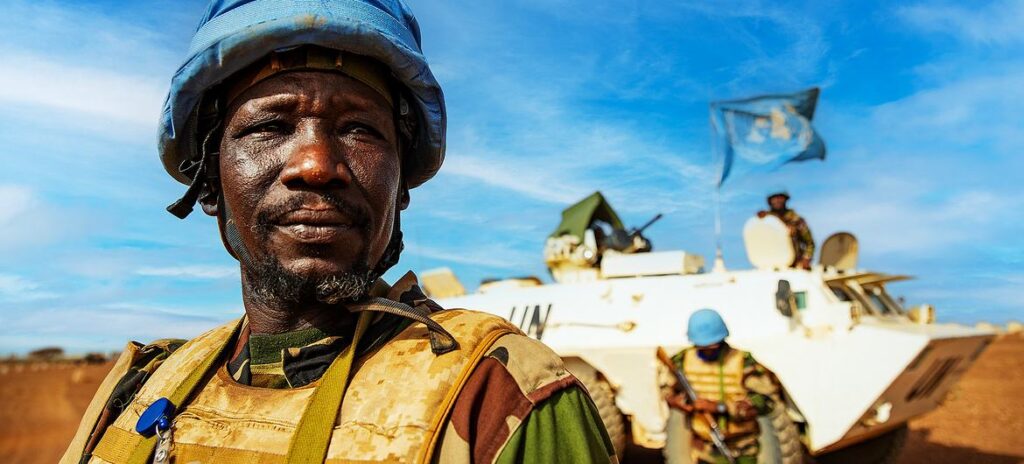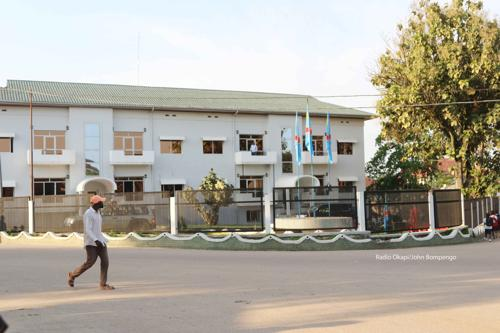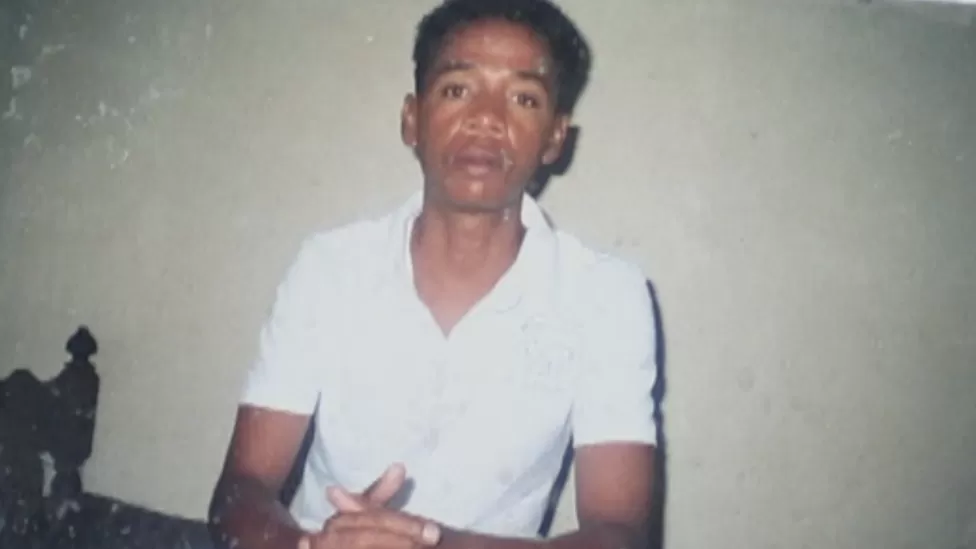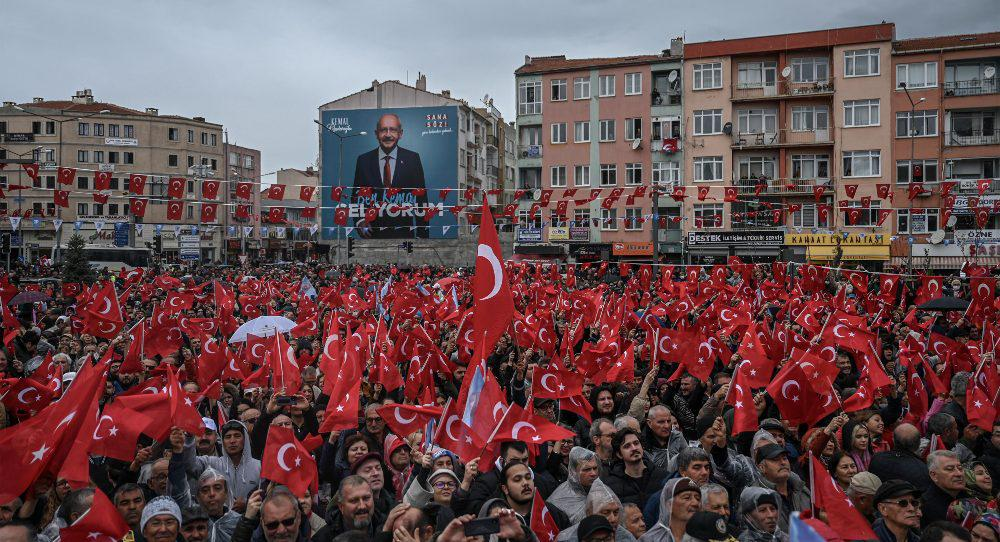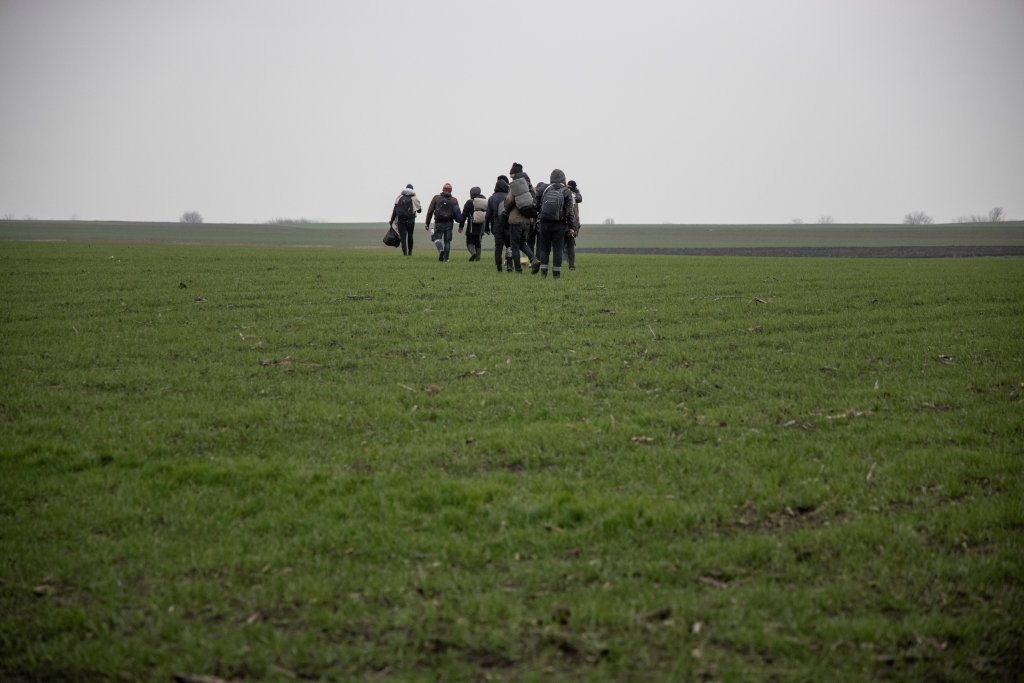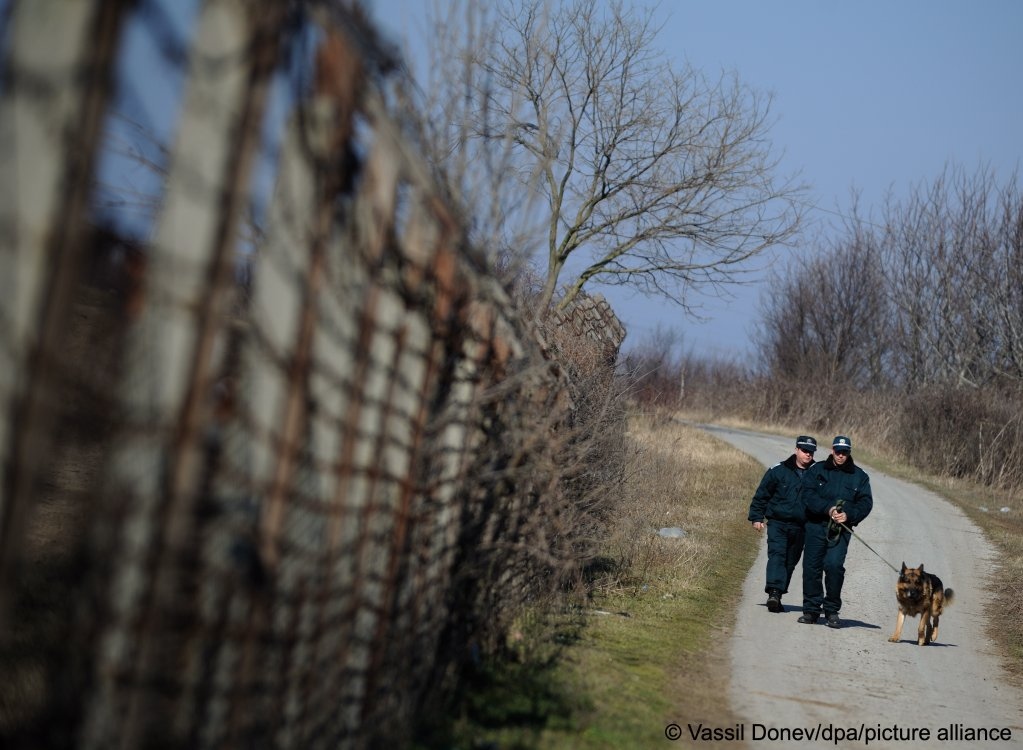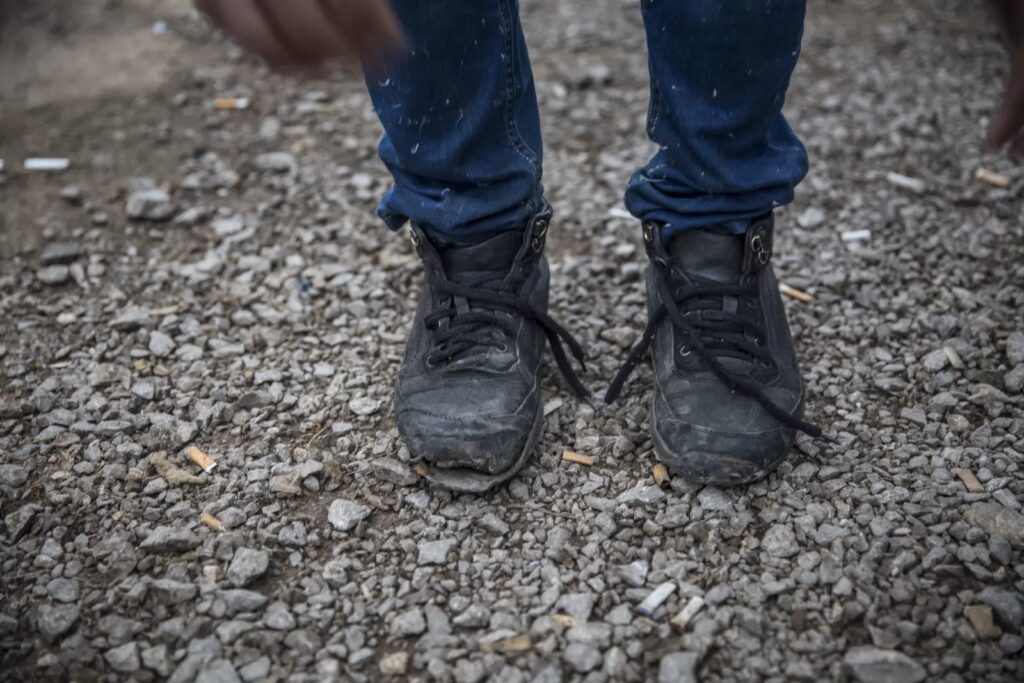WWII & Holocaust Could Never Have Happened Without American Corporations Investing & Joint Venturing with Hitler’s Poor Nazi Germany – Chapter 10

Final Collaborations With Hitler at Vienna and Munich Made to Appear as Only Appeasement
Austria Forcibly United With Nazi Germany Expressly Forbidden in the Versailles Treaty Notwithstanding
The Allowed Successful Murderous Fascist War For Spain Taken For Granted in Outright Collaboration
Republican Spain’s Last Chance, The Battle of the Ebro
By 1938, Hitler must have felt strong enough to accomplish union (Anschluss) with Austria. Anschluss was forbidden by the Versailles Treaty. In February of 1934, Nazi violence in Austria had produced a small civil war. In 1938, Austrian Nazis held parades and marches, set buildings on fire, planted bombs and organized riots. In a meeting with the Austrian Chancellor Kurt Schuschnigg Hitler threatened to invade Austria unless Schuschnigg appointed Nazis to key positions in his government. Schuschnigg complied but only partially, appointing the Nazi Seyss-Inquart as Minister of the Interior, and sought help from France and Britain.
When help was refused, Schuschnigg announced his intention to hold a plebiscite and allow the Austrian people to decide for themselves whether to join with Germany or not. Hitler moved his troops to the Austrian border and demanded that Schuschnigg call off the plebiscite. Schuschnigg must have felt he had no choice but to resign. Seyss-Inquart, Nazi Minister of the Interior took his place and almost immediately asked Hitler to send the German army into Austria to help restore order, enabling Hitler to enter Austria on 13th March by ‘invitation’. Alongside the army came the Gestapo and the SS to deal with opponents of the Nazis. [124]
Pulitzer Prize-winning journalist Edgar Ansel Mowrer, reporting from Paris for CBS, observed: “There is no one in all France who does not believe that Hitler invaded Austria not to hold a genuine plebiscite, but to prevent the plebiscite planned by Schuschnigg from demonstrating to the entire world just how little hold National Socialism really had on that tiny country.“[124a]
US Holocaust Museum Encyclopedia provides a description of the event’s aftermath.
Anschluss, received the enthusiastic support of most of the Austrian population and was retroactively approved via a plebiscite in April 1938. Neither Jews nor Roma (Gypsies) were allowed to vote. The results were manipulated to indicate that more than 99 percent of the Austrian people wanted the union with Germany. Widespread antisemitic actions and political violence followed quickly on the heels of the Anschluss. Austria’s leading politicians were imprisoned, and anyone opposing the Nazi rule was subject to arrest, torture, and death. Jews particularly were attacked and humiliated on the streets. The Gestapo, along with Austrian Nazis and sympathizers, looted Jewish belongings, seized Jewish businesses, and arrested those who refused to surrender their property. Furthermore, anti-Jewish legislation was in place almost immediately, forcing Jews from their positions, and essentially expelling them from the country’s economic, social, and cultural life.[125]
Two years later the London’s Daily Mail offered a glowing report of the Anschluss penned by a reporter, who had hitched a ride in Hitler’s convoy as it sped towards Vienna. And the Mail would showed no sympathy for the Czechs as the Nazis dismembered their country shortly thereafter. The Mail’s support for appeasement was by no means unique in the British press. The Times, for instance, was unwavering in its support of Neville Chamberlain’s policy. And other newspapers ran headlines and pieces that today cause red faces: “Judea declares war on Germany: Jews of all the world unite in action,” Beaverbook’s Daily Express headlined a story about a 1933 boycott of German goods organized by the Nazis’ overseas opponents under Jewish leadership. (Robert Philpot, 5 August 2018, The Times of Israel)[93]
Republican Spain’s Last Chance, The Battle of the Ebro Czechoslovakia Betrayed
In Spain, the warplanes Germany was not supposed to have been permitted to have, continued to bomb without mercy in atrocities similar to Guernica. In March of 1938, after the Anschluss, the French government had reopened the frontier. [127] The Republican Army in Catalonia received tons of war material.
Twelve new divisions were formed, which included conscripts that ranged in age from sixteen years old to middle-aged fathers. [128] In July, the Republican government then launched what would be called the Battle of the Ebro in an attempt to reconnect Madrid with Catalonia. End of August, the fascist forces attacked the passes in the Cavalls Mountain Range with eight divisions supported by German 88 mm guns in order to advance towards Valencia.
Meanwhile at the same time as Hitler’s Condor Legion of bombers and fighter planes were sealing the fate of Spain during the Battle of the Ebro, Hitler was using the same tactics he had used in Austria in the Sudetenland, which the Treaty of Versailles had given to Czechoslovakia. Sudeten Nazis, caused trouble, claiming that they were being oppressed by the Czechs.
(Czechoslovakia had been created after the allied victory in the First World War. Before the conflict it had been part of the Austrian-Hungarian empire. The population consisted of Czechs (51%), Slovaks (16%), Germans (22%), Hungarians (5%) and Rusyns (4%). During the 1920s, Czechoslovakia had then become one of the most industrially advanced and politically progressive states of Europe.) [128A]
The Czech crisis reached the first of many dangerous points in May 1938. It was reported that two Sudeten German motorcyclists had been shot dead by the Czech police. This led to rumours of Hitler preparing to use the incident as a pretext for invasion and there were reports of German troops assembling near the Czech border. The French and Soviet governments pledged support to the Czechs. Lord Halifax sent a message to Berlin which warned that if force was used Germany “could not count upon this country being able to stand aside”. At the same time he sent a diplomatic message which told the French they should not assume Britain would fight to save Czechoslovakia.[129]
On 25th May, Lord Halifax had a meeting Tomas Masaryk, the Czechoslovak minister in London, and warned him the least that his country could “get away with” would be autonomy on “the Swiss model” combined with neutrality in foreign policy. Later that day Chamberlain told the Cabinet “the Sudeten Deutsch should remain in Czechoslovakia but as contented people.” He made the same point that Halifax had made to Masaryk, when he said if Czechoslovakia became a neutral state “it might be possible to get a settlement in Europe.” [129A]
Lord Rothermere, publisher of London’s Daily Mail sent a telegram to Adolf Hitler (1st October, 1938)
“My dear Fuhrer everyone in England is profoundly moved by the bloodless solution to the Czechoslovakian problem. People not so much concerned with territorial readjustment as with dread of another war with its accompanying bloodbath. Frederick the Great was a great popular figure. I salute your excellency’s star which rises higher and higher.” (“The Munich Agreement,” Spartacus Educational)
But five days later, Hitler made a speech in which he stated: “It is my unalterable decision to smash Czechoslovakia by military action in the near future.”[129B]
That summer, a group of anti-Nazi Germans, holding high office, including Admiral Wilhelm Canaris, Colonel-General Ludwig Beck, and Carl Goerdeler, sent Major Ewald von Kleist-Schmenzin to London as their emissary to warn Chamberlain of Hitler’s plans to invade Czechoslovakia, and later to attack France and eventually the Soviet Union. [129C]
In July of 1938, French Foreign Minister Bonnet instructed French Minister in Prague, Victor de Lacroix to explicitly warn President Beneš and his Prime Minister, Milan Hodža that because of the attitude of the British, France could not risk a war in 1938, and that Prague should do its utmost to reach a settlement with Germany. [129D]
August 24, Hitler made a speech in Berlin honoring his guest Miklós Horthy that broadened the Rome-Berlin axis to include Hungary. Hitler spoke warmly of the many years of friendship between Germany and the Austro-Hungarian Empire.[130]
On September 12, 1938, Hitler whipped his supporters into a frenzy at the annual Nuremberg Rally by claiming the Sudeten Germans were “not alone” and would be protected by Nazi Germany. A series of demonstrations took place in the Sudeten area and on 13th September, the Czech government decided to introduce martial law in the area. Konrad Henlein, the leader of the Sudeten Germans, fled to Germany for protection. [130A]
During September, as war threatened, literary personalities began to speak out publicly in defense of Czechoslovakia. Bertolt Brecht sent a telegram of a single sentence to the president of the republic: “Fight, and those who dither will join the fight with you.” A group of British writers, whose most prominent names included H. G. Wells and W. H. Auden wrote that “It is not just Czechoslovakia, but democracy, peace, and civilisation throughout the world that are being attacked. These are the very basis for culture. That is why we writers feel justified in publishing this appeal for the defense of these values and their endangered representatives, and for the defense of the Czechoslovak people.” Thomas Mann wrote and spoke in defense of his surrogate homeland, proclaiming his pride at being a Czechoslovak citizen and praising the republic’s achievements. He attacked a “Europe ready for slavery,” writing that “the Czechoslovak people is ready to take up a fight for liberty that transcends its own fate.” The Nobel laureate addressed an enthusiastic public in New York’s Madison Square Garden on Sept. 26: “Now it is the peoples’ turn. Hitler must fall! That alone can preserve the peace!” [130B]
British Prime Minister Neville Chamberlain sent Hitler a message requesting an immediate meeting, which was promptly granted. Hitler invited Chamberlain to see him at his home in Berchtesgaden on September 16th. It would be the first visit by a British prime minister to Germany for over 60 years. The last leader to visit the country was Benjamin Disraeli when he attended the Congress of Berlin in 1878. Members of the Czech government were horrified when they heard the news as they feared Chamberlain would accept Hitler’s demands for the transfer of the Sudetenland to Germany. [130C]
Hitler must have beens astounded but highly pleased that the man who presided over the destinies of the mighty British Empire should come pleading to him, and flattered that a man who was sixty-nine years old and had never traveled in an airplane before should make the long seven hours’ flight to Germany.
Chamberlain asked Hitler what was required for a peaceful solution. Hitler demanded the transfer of all districts in Czechoslovakia with a 50 per cent or more German-speaking population. Chamberlain said he had nothing against the idea in principle, but would need to overcome “practical difficulties”. [130D]
On 17th September. Chamberlain called an emergency cabinet meeting. He ignored his critics and without taking a vote he insisted the Cabinet had “accepted the principle of self-determination and given him the support he had asked for”. Chamberlain claimed that his policy was very popular with the public. That evening Chamberlain and Foreign Secretary Lord Halifax received a delegation at Downing Street from leaders of the Labour Party and the Trade Union movement. They suggested that these were unlikely to be the last of Hitler’s demands, and believe that he intends to go on and on, until he dominates first all Central and South Eastern Europe, then all Europe, then the world. [130E]
On 18th September, 1938, Chamberlain and several of his ministers, met Edouard Daladier, the prime minister of France, in order to persuade him to agree to the orderly transfer of the Sudeten areas to Germany. Chamberlain said that unless we accept Hitler’s demands, “we must expect that Herr Hitler’s reply would be to give the order to march”. [130F] Daladier told Chamberlain the French would agree to support Hitler’s demands only in return for a British agreement to join the French alliance system in protecting other countries in eastern Europe, including guaranteeing what was left of Czechoslovakia. [130G]
Chamberlain now had to sell the idea to the Cabinet. He faced a hostile reception to the idea foreign secretary, Lord Halifax, also found it difficult to defend. He conceded that he too “felt considerable misgivings about the guarantee, but… it would have been disastrous if there had been any delay in reaching agreement with the French”.[130H] Samuel Hoare, the Home Secretary, was given the task of persuading the newspapers to support Chamberlain’s plan. He began to hold daily meetings with proprietors and editors.[130J] Sir Horace Wilson, a senior civil servant who worked closely with Chamberlain, was given the task of controlling the way appeasement was reported on the BBC. A subsequent internal BBC report … confirmed that “news bulletins as a whole inevitably fell into line with Government policy at this critical juncture.”[130K] Paramount News released a newsreel featuring interviews with two senior British journalists who were critical of Chamberlain. …Lord Halifax approached Joseph Kennedy, the American ambassador based in London, and asked for the offending interviews to be removed. Kennedy brought his influence to bear on Paramount’s American holding company, and the offending newsreel was quickly withdrawn.[130L]
On 19th September, 1938, the National Council of Labour issued a statement saying that it viewed “with dismay the reported proposals of the British and French Governments for the dismemberment of Czechoslovakia under the brutal threat of armed force by Nazi Germany and without prior consultation with the Czechoslovak Government.[130M] Some newspapers became hostile to the government’s policy towards the Sudetenland. The Daily Herald commented angrily that the Czechs had been “betrayed.” Chamberlain did receive support from the Duke of Windsor, the former King Edward VIII: “I would wish to express on behalf of the Duchess and myself, our very sincere admiration for the courageous manner in which you threw convention and precedent to the winds by seeking a personal meeting with Herr Hitler and flying to Germany. Duke of Windsor,[130N]
Meanwhile the German government continuing to put pressure on Chamberlain to make a decision. Joseph Goebbels mounted a propaganda campaign against the Czech government. On the 19th September, President Eduard Beneš of Czechoslovakia had a meeting with his ministers and the leaders of the six coalition parties, and his military chiefs of staff. They discussed the issue for two days before issuing a statement rejecting the Anglo-French plan. Acceptance of the proposals would be unconstitutional, and would lead to the “complete mutilation of the Czechoslovak State in every respect”. The statement also reminded the British and French about their own treaty obligations towards Czechoslovakia.[130P]
On September 21st, British and French officials told President Beneš that if Czechoslovakia refused to accept the Anglo-French plan and war were to break out, then the Czech government would be held solely responsible and they would be given no military assistance. Beneš later recalled that the French official had “tears in his eyes” whereas the British official behaved coldly, shuffling uneasily and constantly looking down at the floor. “I had the impression that both of them were ashamed to the bottom of their hearts of the mission they had to discharge.”[130R] President Beneš felt he had no option but to capitulate and announced that the country had been “disgracefully betrayed”[130S] The following morning there was a general strike in Prague, and an even larger mass demonstration. Over 100,000 people demanded a military government, and a programme of national resistance. That evening the Czech government resigned. In its place President Beneš appointed a new, non-political Government of National Defence, to be headed by General Jan Syrový, the Inspector General of the army. Syrový issued a statement that night: “I guarantee that the Army stands and will stand on our frontiers to defend out liberty to the last. I may soon call upon you here to take an active part in the defence of our country in which we all going to join.”[130T]
Maxim Litvinov, the Soviet foreign minister, told the assembly of the United Nations that the Soviet Union intended to fulfill its obligations towards Czechoslovakia, if France would do the same.[130U] This created a serious problem for the Anglo-French plan and Chamberlain announced that he was going to have another meeting with Hitler.
Chamberlain arrived in Godesberg on 22nd September. At their first meeting Hitler made a series of new demands. He now wanted the immediate occupation of Sudeten areas and non-German-speakers who wished to leave would be allowed to take only a single suitcase of belongings with them. He also added certain areas with less than 50 per cent German speakers and raised Polish and Hungarian grievances in other areas of Czechoslovakia.[130V] At another meeting the following day Chamberlain pleaded with him to return to the terms of the previous agreement. Chamberlain pointed out that he had already risked his entire political reputation to gain the Anglo-French plan and if he marched into the Sudetenland, his political career would be destroyed. He pointed out that when he left England he had been booed by the crowd at the airport. Hitler refused to budge and restated that he would occupy the Sudeten areas on 1st October. Chamberlain decided to break-off talks and return to London.[130W]
Chamberlain had been right about the changing public mood in Britain. A Mass Observation poll found that 44 per cent of those questioned expressed themselves to be “indignant” at Chamberlain’s policy, while only 18 per cent were supportive. Of those men who were questioned, 67 per cent said they were willing to fight to defend Czechoslovakia. On the day that he returned to London, a crowd of over 10,000 people massed in Whitehall, shouting “Stand by the Czechs!” and “Chamberlain must go!”[130X] (Daily Herald (23rd September, 1938“)
The Godesberg Memorandum was issued by Adolf Hitler in the early hours of 24 September 1938 concerning the Sudetenland and amounting to an ultimatum addressed to the government of Czechoslovakia. It was named after Bad Godesberg, where Hitler had met Neville Chamberlain for long talks on 22 September continuing into the next day. Hitler demanded the Sudetenland be ceded to Germany no later than September 28, 1938 with no negotiations between Prague and Berlin and no international commission to oversee the transfer; no plebiscites to be held in the transferred districts until after the transfer; and he also declared that Germany would not abandon war as an option until all the claims against Czechoslovakia by Poland and Hungary had been satisfied. The arrangements for the transfer were to be decided bilaterally between the Germans and the Czechs and by no one else.
The “memorandum” stated an ultimatum for Czech acceptance of it, expiring at 2 pm on 28 September 1938. If the Czech government would not agree to Hitler’s demands by then, Germany would take the Sudetenland by force. [130Y]
On 24th September the Cabinet had a full-day meeting. Chamberlain told his ministers that he was “satisfied Herr Hitler would not go back on his word” and was not using the crisis as an excuse to “crush Czechoslovakia or dominate Europe.[130Z] Lord Halifax, the Foreign Secretary, wrote to Chamberlain explaining: “Public opinion seems to be hardening in sense of feeling that we have gone to limit of concession and that it is up to Chancellor Hitler to make some contribution.”[130Za]
The Sunday Sept. 25th issue of the New York Times front page in large bold letters read
CZECHS HAVE UNTIL OCT. 1st to ACCEPT
Hitler Aids Polish-Magyar Designs
Daladier Flying to London Again
130Zb]
That Sunday, Chamberlain had a meeting with Edouard Daladier, the prime minister of France. Daladier pointed out that it was now clear that Hitler’s sole objective was “to destroy Czechoslovakia by force, enslaving her, and afterwards realizing the domination of Europe”. Chamberlain asked if this meant France would declare war on Germany? Daladier replied that “in the event of unprovoked aggression against Czechoslovakia, France would fulfill her obligations”.[130Zc]
The Czechoslovak government leaked details of the Godesberg demands to the British press. The Times included a statement from Leo Amery, First Lord pf the Admiralty attacking Chamberlain: “Are we to surrender to ruthless brutality[130Zd] Chamberlain responded with the words: “How horrible, fantastic, incredible it is that we should be digging trenches and trying on gas masks here because of a quarrel in a far-away country between people of whom we know nothing.”[130Ze]
September 27, Neville Chamberlain gave a radio address saying, “However much we may sympathize with a small nation confronted by a big and powerful neighbor, we cannot in all circumstances undertake to involve the whole British Empire in a war simply on her account. If we have to fight it must be on larger issues than that.” [130Zf] The French consented to Chamberlain’s policy, thus abandoning their former commitments, and the Soviet Union was under treaty obligation to assist Czechoslovakia only if the French would. [130Zg]
With the threat of war looming over Europe, on the same day, September 27, 1938 President Franklin D. Roosevelt wrote to Adolf Hitler, the Nazi leader, appealing to him to avoid the “incalculable disaster which would result to the entire world from the outbreak of [another] European war.” Addressing Hitler as the German chancellor, Roosevelt focused on German threats to annex the largely German-speaking western third of Czechoslovakia, known as the Sudetenland.
Hitler replied on the same day in a lengthy telegram
Asserting that “conditions in the Czechoslovak state, as is generally known, have in the last few weeks become completely intolerable. Political persecution and economic oppression have plunged the Sudeten Germans into untold misery.” Hitler concluded his response by falsely asserting that “it now rests, not with the German government, but with the Czechoslovak government alone, to decide if they want peace or war.”[131]
The Czechs announced on 28 September that they rejected the Memorandum, and the French ordered the mobilization of 600,000 men. [131A]
Before they left for Munich, Chamberlain and Halifax met Tomas Masaryk, the Czechoslovak minister in London. Masaryk tried to insist that his country should be represented in these talks. However, he was told that Hitler had only agreed to the conference on condition that the Soviet Union and Czechoslovakia were excluded. [131B]
The meeting ended with Hitler, Chamberlain, Daladier and Mussolini signing the Munich Agreement which transferred the Sudetenland to Germany. The occupation by stages of the predominantly German territory by German troops will begin on October 1st and be completed by October 10th.[131C Text of the agreement signed]
The Czech government now realized that if they resisted Hitler’s demands, they would have to fight the war on its own. At 12.30 p.m. Czech Foreign Minister Kamil Krofta made a statement: “The Government of the Czechoslovak Republic, in announcing his acceptance, declares also before the whole world its protest against the decisions which were taken unilaterally and without our participation.” [131D]
Crowds cheered all along Chamberlain’s route from the airport back to Buckingham Palace, where he was to brief King George VI on the incredible turn of events.
The Daily Express reported: “Be glad in your hearts. Give thanks to your God. People of Britain, your children are safe. Your husbands and your sons will not march to war The main supporter of appeasement was the newspaper baron, Lord Rothermere, who held neo-fascist views. Hitler was kept informed about what British newspapers were saying about him. He was usually very pleased by what appeared in The Daily Mail. On 20th May 1937 he wrote to Lord Rothermere: “Your leading articles published within the last few weeks, which I read with great interest, contain everything that corresponds to my own thoughts as well.”[131E]
However, some newspapers did object to the agreement. The Manchester Guardian reported: “Politically, Czechoslovakia is rendered helpless with all that it means to the balance of forces in Eastern Europe, and Hitler will be able to advance again, when it chooses, with greatly increased force.”[131F]
The Daily Herald, a newspaper that supported the Labour Party, argued: “Thousands of people (not so much Czechs as anti-Nazi Sudeten Germans) are going to suffer. They must run for their lives or face the rubber truncheons and the concentration camps.” ) [131G]
Chamberlain’s close friend, Sir George Joseph Ball, Director of the Conservative Research Department, played an important role in promoting the government’s foreign policy. Ball controlled the anti-Semitic and pro-Nazi magazine, The Truth, that mounted a smear campaign against the critics of appeasement. Ball, a former member of MI5, arranged for the telephones of Churchill and Eden to be tapped. In the aftermath of Munich he dismantled the Foreign Office News Department, making 10 Downing Street the sole repository for government news. ) [131H] (Graham Macklin, Neville Chamberlain (2006) page 75)
Winston Churchill did not vote against the Munich Agreement. Nor did the other Conservative MPs who had been critical of the government appeasement policy[131J]
On October 1st, German troops marched into the Sudetenland and the Polish government gave the Czech government an ultimatum stating that Zaolzie region must be handed over within twenty-four hours. The Czechs had little choice but to comply, and Polish forces occupied Zaolzie.[131K] The Czechoslovak foreign ministry called the Polish ambassador in Prague and told him that Poland could have what it wanted. The Polish Army, commanded by General Władysław Bortnowski, annexed an area of 801.5 km2 with a population of 227,399 people.[131L] At the same time Slovakia lost to Hungary 10,390 km2 with 854,277 inhabitants.
The Germans were delighted with this outcome, for the ensuing propaganda benefits. It spread the blame of the partition of the Republic of Czechoslovakia, made Poland a participant in the process. Poland was accused of being an accomplice of Nazi Germany – a charge that Warsaw was hard-put to deny.
The United States Holocaust Museum UCLA Film and Television Archive “The Munich Agreement,” describes:
The agreement signed at the Munich conference of September 1938 ceded the German-speaking Sudetenland region of Czechoslovakia to Germany. The agreement was reached between Germany, Italy, Britain, and France. Czechoslovakia was not permitted to attend the conference. In March 1939, six months after signing the Munich agreement, Hitler violated the agreement and destroyed the Czech state. –
Most of Europe celebrated the agreement, because it prevented the war threatened by Adolf Hitler by allowing Nazi Germany’s annexation of the Sudetenland, a region of western Czechoslovakia inhabited by more than 3 million people, mainly German speakers. Hitler had announced it was his last territorial claim in Europe, and the choice seemed to be between war and appeasement.
The Munich Agreement was soon followed by the First Vienna Award on 2 November 1938, separating largely Hungarian inhabited territories in southern Slovakia and southern Subcarpathian Rus’ from Czechoslovakia, while Poland also annexed territories from Czechoslovakia in the North. In March 1939, the First Slovak Republic as a Nazi protectorate was proclaimed,[131M] and shortly thereafter by the forced creation of the Protectorate of Bohemia and Moravia Germany took full control of the remaining Czech parts. As a result, Czechoslovakia had disappeared.[131N] On March 15 1939, Hitler had given Czechoslovak President Emil Hácha a stark choice: accept becoming a protectorate or face destruction. At 4 AM in meeting with Hitler, Hácha reluctantly agreed to give up his country’s independence and the German army started moving in. That evening Hitler gave a victory speech in Prague.
Two Examples of How Munich Was Reported Both in 1938 and at the Time of This Writing in Retrospect in the US and Russian Press Respectively.
New York Times, Oct. 14, 1938
MUNICH CONCESSION TERMED BETRAYAL; England and France Scored at Luncheon of Supporters of League of Nations Here WIDER SURRENDER SEEN …
Newsweek, October 2, 2017:
RUSSIA BLAMES WEST FOR LETTING NAZIS TAKE OVER EUROPE IN WORLD WAR II, By Tom O’Connor: Russia said Monday it blames Western European governments for Adolf Hitler’s rise to power and the outbreak of the deadliest conflict in history that followed.
In a statement issued days after the 79th anniversary of the event, the Russian Foreign Ministry said the U.K. and France paved the way for Hitler’s fascist takeover of Europe by signing the Munich Agreement on September 30, 1938.
The document—which was signed by U.K. Prime Minister Neville Chamberlain and French Prime Minister Édouard Daladier, as well as fascist allies Benito Mussolini of the Italian Social Republic and Hitler of Nazi Germany—allowed Hitler to annex a strategic region of Czechoslovakia as an appeasement designed to avoid an armed conflict that would ultimately occur anyway.
The Soviet Union, then led by Josef Stalin, objected to the terms of the treaty and offered to come to Czechoslovakia’s aid, but only if Poland and Romania would allow Soviet troops to cross their territory. Both countries rejected this condition and Nazi forces occupied a Czech territory called the Sudetes. German forces soon after invaded the rest of the country in March 1939.
At the same time of the surrender Czechoslovakia to Hitler under the pretext of avoiding war, a real war of genocidal proportions was being successfully prosecuted by Hitler and his fascist ally Mussolini in Spain and was simply being ignored by the British, French and US leadership.
At the Battle of Ebro campaign the forces of the Republic failed, undermined by the Franco-British appeasement of Hitler in Munich. The agreement with Britain effectively destroyed Republican morale by ending hope of an anti-fascist alliance with Western powers. The retreat from the Ebro all but determined the final outcome of the war.
(Beevor, Antony, The Battle for Spain)[132]
What seems striking is the relative unimportance accorded the Nazi-Fasicist war on Spain in the press coverage of the Munich agreement. While war in Europe was said to be being avoided, Hitler’s and Mussolini’s deadly ongoing war in Spain was being totally ignored. Moreover, though decrying Soviet aid as its main justification, British, French and American non-intervention was obviously in tandem with the fascist powers’ onslaught.
The wake up call that this present volume presents, namely WWII & the MULTI-NATION HOLOCAUST COULD NOT HAVE HAPPENED WITHOUT USA REARMING GERMANY FOR WAR ON RUSSIA, best not be muted or distracted away by this popularized infamous point in deceptive Western history ‘critically’ named ‘Munich Appeasement.’ The world should be made aware that Hitler had been already empowered to threaten the war he would eventually order in any case, for having had his Nazi German military built up as world’s strongest by the industrial might of the United States of America.
J. Jankovsky-Novak aka Jay Janson spent eight years as Assistant Conductor of the Vietnam Symphony Orchestra in Hanoi and also toured, including with Dan Tai-son, who practiced in a Hanoi bomb shelter. The orchestra was founded by Ho Chi Minh, and it plays most of its concerts in the Opera House, a diminutive copy of the Paris Opera. In 1945, our ally Ho, from a balcony overlooking the large square and flanked by an American Major and a British Colonel, declared Vietnam independent. Everyone in the orchestra lost family, “killed by the Americans” they would mention simply, with Buddhist unaccusing acceptance. Jay can be reached at: tdmedia2000@yahoo.com .
Chapter – Nine Final Collaborations With Hitler Made to Appear as Appeasement
- The expectation of an eventual united Austria and Germany that would form a “Greater Germany” dates back to the 1871 unification of Germany that had excluded Austria and the German Austrians from the Prussian-dominated German Empire. Following the end of World War I, with the fall and dissolution of the Austro-Hungarian Empire, in 1918, the newly formed rump Republic of German-Austria attempted to form a union with Germany, but the Treaty of Saint Germain (10 September 1919) and the Treaty of Versailles (28 June 1919), which forbade both the union) and stripped Austria of much of its territories, such as the Sudetenland, continued the use of the name “German-Austria” (Deutschösterreich)
History on the Net [https://e/nazi-germany-anschluss]
124a. “History of Western Civilization II, Ch. 27 The Interwar Period,” https://courses.lumenlearning.com/boundless-worldhistory/. License: CC BY-SA: Attribution-ShareAlike
- US Holocaust Museum…..https://www.ushmm.org/collections/bibliography/anschluss
- Thomas, Hugh, The Spanish Civil War. (Penguin Books. London (2001).
- Beevor, Antony. (2006). The Battle for Spain. The Spanish Civil War, 1936–1939. Penguin Books. London
128A. https://spartacus-educational.com/2WWmunich.htm
- Frank McDonough, Neville Chamberlain, Appeasement and the British Road to War (1998 (New Frontiers in History.) New York: Manchester University Press; dist. by St. Martin’s Press page 61; Adamthwaite, Anthony, France and the Coming of the Second World War 1936–1939, (London: Frank Cass, 1977) page 190.
129A. Robert A. Parker, Chamberlain and Appeasement (1993 Macmillan), page 149
129B. Adolf Hitler, speech 30th May, 1938 The Speeches of Adolph Hitler, www.der-fuehrer.org/redenen.htm)
29C. Richard Lamb, The Ghosts of Peace 1935-1945 (M. Russell edition1987) pages 2-5 and James P. Duffy & Vincent L. Ricci. Target Hitler: The Many Plots to Kill Adolf Hitler, pg. 60,( Enigma Books, 2013)
129D. Anthony P. Adamthwaite, France and the Coming of the Second World War 1936–1939, page 197
- Sigrid Schultz, (August 25, 1938). “Hungary Safe from Invasion, Hitler Pledges”. Chicago Daily Tribune. p. 1
130A. Parker, Chamberlain and Appeasement ) pages 160-161
130B. “The Committee for the Salvation of Czechoslovakia meets in Madison Square Garden, New York.” Among others, Thomas Mann and Dorothy Thompson give speeches at the convention. alamy.com
130C. Frank McDonough, Neville Chamberlain, Appeasement and the British Road to War (1998) page 63
130D. Telford Taylor, Munich: The Price of Peace (1979) page 740
130E. Ben Pimlott, Hugh Dalton: A Life (1985) page 256 (book examining the life of Dalton, one of the pivotal figures in the 1945 Labour Government.
130F. Sir John Simon, diary entry (29th September, 1938) Sir John Simon was then the British foreign secretary,
130G. Robert A. Parker, Chamberlain and Appeasement (1993) page 165
130H. Cabinet minutes (19th September, 1938)
130J. Richard Crockett, Twillight of Truth: Chamberlain, Appeasement and the Manipulation of the Press (1989) page 79
130K. David Faber, Munich: The 1938 Appeasement Crisis (2008) page 303
130L. Adam Adamthwaite, Journal of Contemporary History (April, 1983) page 288
130M. National Council of Labour, statement (19th September, 1938
130N. letter to Neville Chamberlain (18th September, 1938)
130P. Statement issued by the Czechoslovak government (20th September, 1938)
130R. J. W. Bruegel, Czechoslovakia Before Munich (1973) page 280
130S. Hubert Ripka, Munich: Before and After (1939) pages 106-108
130T. General Jan Syrový, statement (22nd September, 1938) https://lindat.cz/repository/xmlui/handle/20.500.12801/3901684-01
130U. Maxim Litvinov, speech at the League of Nations (22nd September, 1938) http://soviethistory.msu.edu/1936-2/popular-front/popular-front-texts/litvinov-to-the-league-of-nations/
130V. Frank McDonough, Neville Chamberlain, Appeasement and the British Road to War (1998) page 65
130W.David Faber, Munich: The 1938 Appeasement Crisis (2008) pages 326-332
130X. The Daily Herald (23rd September, 1938) “Appeasement,” Spartacus Educational)
130Y. Godesberg Memorandum… Adolph Hitler…
Item # 674817 September 24, 1938 THE NEW YORK TIMES, September 24, 1938
130Z. Neville Chamberlain, Cabinet minutes (24th September, 1938)
130Za. Lord Halifax, letter to Neville Chamberlain (23rd September, 1938)
130Zb. https://www.rarenewspapers.com/view/674818/https://i.ebayimg.com/images/g/3eYAAOSwCUderDfR/s-l400.jpg[
130Zc. Record of an Anglo-French Conversation held at 10 Downing Street (25th September, 1938)
130Zd. Leo Amery, The Times (26th September, 1938)
130Ze. Neville Chamberlain, speech (27th September, 1938
130Zf. [Source: Neville Chamberlain, The Struggle for Peace (1939), p. 393; and Parliamentary Debates, House of Commons (London: HMSO, 1938) vol. 339, 12th vol. of session 1937-1938, pp. 361-369, 373.]
130Zg. “Czechoslovak history – Czechoslovakia” (1918–92) | Britannica https://www.britannica.com › topic › Czechoslovak-history › Czechoslovakia-1918-92
- Andrew Glass, “FDR writes letter to Hitler urging peace,” Sept. 27, 1938 – Politico 09/27/2018 Politico https://www.politico.com/story/2018/09/27/fdr-hitler-letter-urges-peace-1938-837590
131A. [S. N. Sen, “Contemporary World” (New Age International, 2009, ISBN 978-8122418224), p. 62]
131B. John Wheeler-Bennett, Munich: Prologue to Tragedy (1963) page 171
131C. Text of the agreement signed
Germany, the United Kingdom, France and Italy, taking into consideration the agreement, which has been already reached in principle for the cession to Germany of the Sudeten German territory, have agreed on the following terms and conditions governing the said cession and the measures consequent thereon, and by this agreement they each hold themselves responsible for the steps necessary to secure its fulfillment:
(1) The evacuation will begin on October 1st.
(2) The United Kingdom, France and Italy agree that the evacuation of the territory shall be completed by October 10th, without any existing installations having been destroyed, and that the Czechoslovak Government will be held responsible for carrying out the evacuation without damage to the said installations.
(3) The conditions governing the evacuation will be laid down in detail by an international commission composed of representatives of Germany, the United Kingdom, France, Italy and Czechoslovakia.
(4) The occupation by stages of the predominantly German territory by German troops will begin on October 1st. The four territories marked on the attached map will be occupied by German troops in the following order: the territory marked number I on the 1st and 2nd of October, the territory marked number II on the 2nd and 3rd of October, the territory marked number III on the 3rd, 4th and 5th of October, the territory marked number IV on the 6th and 7th of October. The remaining territory of preponderantly German character will be ascertained by the aforesaid international commission forthwith and be occupied by German troops by the 10th of October.
(5) The international commission referred to in paragraph 3) will determine the territories in which a plebiscite is to be held. These territories will be occupied by international bodies until the plebiscite has been completed. The same commission will fix the conditions in which the plebiscite is to be held, taking as a basis the conditions of the Saar plebiscite. The commission will also fix a date, not later than the end of November, on which the plebiscite will be held.
(6) The final determination of the frontiers will be carried out by the international commission. The commission will also be entitled to recommend to the four Powers, Germany, the United Kingdom, France, and Italy, in certain exceptional cases, minor modifications in the strictly ethnographical determination of the zones which are to be transferred without plebiscite.
(7) There will be a right of option into and out of the transferred territories, the option to be exercised within six months from the date of this agreement. A German-Czechoslovak commission shall determine the details of the option, consider ways of facilitating the transfer of population and settle questions of principle arising out of the said transfer.
(8) The Czechoslovak Government will, within a period of four weeks from the date of this agreement, release from their military and police forces any Sudeten Germans who may wish to be released, and the Czechoslovak Government will within the same period release Sudeten German prisoners who are serving terms of imprisonment for political offences. Signed Adolf Hitler, Ed.Daladier, Mussolini, Neville Chamberlain GHDI – Document
131D. David Faber, Munich: The 1938 Appeasement Crisis (2008) page 413
131E. Adolf Hitler letter to Harold Harmsworth, 1st Lord Rothermere (20th May 1937)
131F. The Manchester Guardian (1st October, 1938)
131G. The Daily Herald (1st October, 1938)
131H. Graham Macklin, Neville Chamberlain (2006) page 75
131J. Clive Ponting, Winston Churchill (1994) page 177
131K. Zaolzie is the Polish name for an area now in the Czech Republic which was disputed between interwar Poland and Czechoslovakia. The name means “lands beyond the Olza River”
131L. according to Polish newspaper Ilustrowany Kuryer Codzienny on 3 October 1938.
131M. Taking advantage of the greatly weakened state of the Czechoslovak government, Slovak Populist leader Jozef Tiso was secretly encouraged by Hitler to agitate for Slovak independence. And on 14 March, 1939, Slovak parliamentarians voted in favor of complete succession from Czechoslovakia, and Tiso publicly “pleaded” with Hitler to step in and take charge of the defense of the newly emancipated Slovakia which duly became Germany’s puppet state.
131N. Quoting from Editors: Igor Lukes, Erik Goldstein, The Munich Crisis, 1938: Prelude to World War II. (Publisher :Taylor & Francis, 12 October 2012 – Routledge ISBN 9781136328398). Igor Lukes » History | Blog Archive | Boston University – Lukes writes primarily about Central Europe. His publications deal with the interwar period. See also Igor Lukes | Center for European Studies at Harvard University]. Igor Lukes is a professor of history at Boston University, who focuses on central European history since World War I. He is also an Honorary Consul General of the Czech Republic.:
“Beneš had resigned the presidency of Czechoslovakia and fled into exile shortly before the occupation of the Sudetenland months before, and the new President Emil Hácha was completely out of his depth in dealing with Hitler’s strong-arm tactics. Hácha requested an audience with Hitler upon the announcement of the secession of Slovakia, and during the course of many hours’ worth of overnight meetings, the German dictator was able to browbeat and intimidate the flustered Czech president into agreeing with the German takeover of the rump state and into its incorporatation into the German Protectorate of Bohemia-Moravia in order to supposedly safeguard the peace and security of Central Europe. The agreement was signed at almost 4:00 a.m. on the morning of 15 March, and scarcely two hours later German troops began pouring over the border into Bohemia and Moravia and took possession of the country while the Czech military was commanded to step down and allow them to enter. That evening Hitler made his triumphant entry into Prague where he proclaimed his bloodless victory at Prague Castle, and Czechoslovakia ceased to exist for the next 6 years.”
- Beevor, Antony (2006) [1982]. The Battle for Spain: The Spanish Civil War 1936–1939. London, England: Weidenfeld & Nicolson. ISBN 0-297-84832-1.Beevor 2006, p.362.pp.349–359


